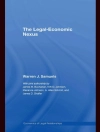This book discusses the social and political consequences of the economic and financial crisis that befell African economies since the 1980s, using as case study the plantation economy of the Anglophone region of Cameroon. The focus is thus on recent efforts to liberalize and privatize an agro-industrial enterprise where overseas capital and its domestic partners have converged, the consequent modes of production and labour, and the alternatives proposed and resistance generated. The study details how the unprecedented crisis caused great commotion in the region, and presented a serious challenge to existing theories on plantation production and capital accumulation. The crisis resulted in the introduction of a number of neoliberal economic reforms, including the withdrawal of state intervention and the restructuring, liquidation and privatisation of the major agro-industrial enterprises. These reforms in turn had severe consequences for several civil-society groups and their organisations that had a direct stake in the regional plantation economy, notably the regional elite, chiefs, plantation workers and contract farmers. On the basis of extensive research in the Anglophone Cameroon region, Konings shows that these civil-society groups have never resigned themselves to their fate but have been actively involved in a variety of formal and informal modes of resistance.
Piet Konings
Crisis and Neoliberal Reforms in Africa [PDF ebook]
Civil Society and Agro-Industry in Anglophone Cameroon�s Plantation Economy
Crisis and Neoliberal Reforms in Africa [PDF ebook]
Civil Society and Agro-Industry in Anglophone Cameroon�s Plantation Economy
Beli ebook ini dan dapatkan 1 lagi GRATIS!
Bahasa Inggris ● Format PDF ● Halaman 278 ● ISBN 9789956579266 ● Ukuran file 4.4 MB ● Penerbit Langaa RPCIG ● Negara CM ● Diterbitkan 2010 ● Diunduh 24 bulan ● Mata uang EUR ● ID 2641353 ● Perlindungan salinan Adobe DRM
Membutuhkan pembaca ebook yang mampu DRM












